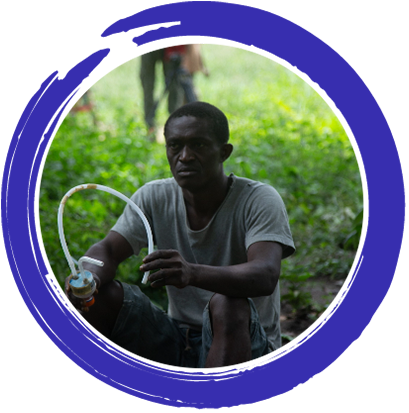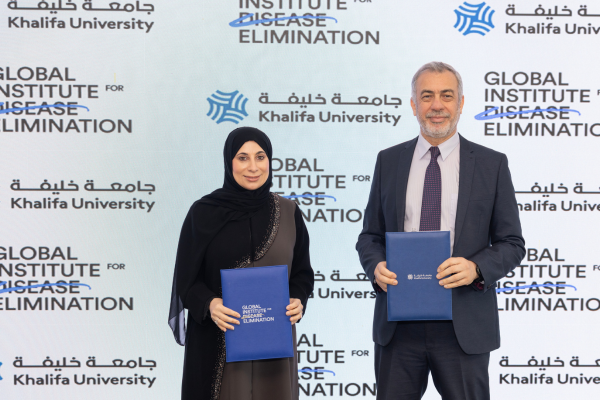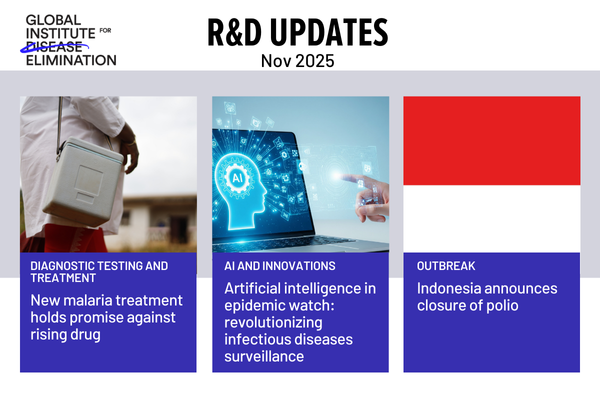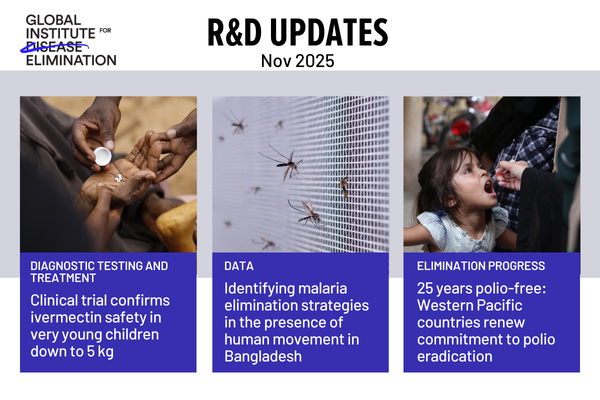








يعمل المعهد العالمي للقضاء على الأمراض المعدية (GLIDE) على تعزيز الوعي والمشاركة بشأن الأمراض الأربعة التي يركز عليها حاليًا - وهي الملاريا وداء الفيلاريا اللمفي وداء كلابية الذنب (العمى النهري) وشلل الأطفال. ونربط جهود القضاء على الأمراض على المستويات العالمية والإقليمية والوطنية مع الأولويات الصحية العالمية الأخرى ذات الصلة.

يعمل المعهد العالمي للقضاء على الأمراض المعدية (GLIDE) بالتعاون مع شركاء الدولة ووزارات الصحة على تقديم المشورة الفنية ومبادرات بناء القدرات. كما تعمل على تسهيل العمل عبر الأمراض وعبر الحدود وعبر القطاعات للمساعدة في تضخيم الدروس المستفادة وتحديد أوجه التآزر لتعزيز القضاء على الأمراض.
نقوم بنشر أخبارنا باللغة الإنجليزية. يُرجى الملاحظة أن الروابط أدناه ستنقلكم إلى موقعنا الإلكتروني باللغة الإنجليزية.

Collaboration Aligns with the UAE’s Long-Standing Commitment to Combating Infectious Diseases Regionally and Worldwide Abu Dhabi, UAE: 02 October 2025 – Khalifa University of Science and Technology and The Global Institute for Disease Elimination (GLIDE) today announced they have signed a Memorandum of Understanding (MoU) to collaborate on capacity-strengthening initiatives aimed at enhancing public […]
READ MORE
Vector Control Field trial finds promising evidence on Spinosad: a bio-larvicide for mosquito control in urban settings in Bengaluru, India – Link Diagnostic testing and treatment Performance of novel onchocerciasis rapid diagnostic tests in a field setting in South Sudan – Link Beyond malaria: can intermittent preventive treatment with sulphadoxine-pyrimethamine reduce the number of small […]
READ MORE
Vector Control Effect of exposure to malaria messages on insecticide-treated net use among women and under-five children in Uganda: a propensity score matched analysis – Link Evaluating a novel multi-species vector control tool for humanitarian crises: the efficacy of attractive targeted sugar baits among forcibly displaced populations in Northern Nigeria – Link Diagnostic testing […]
READ MORE
Vector Control Contact exposure to ivermectin induces acute mortality and inhibits parasite development in malaria vectors – Link Utilization of insecticide-treated nets for malaria prevention among children in Africa: a systematic review and meta-analysis – Link Anopheles stephensi larval habitat superproductivity and its relevance for larval source management in Ethiopia – Link A costing analysis […]
READ MORE